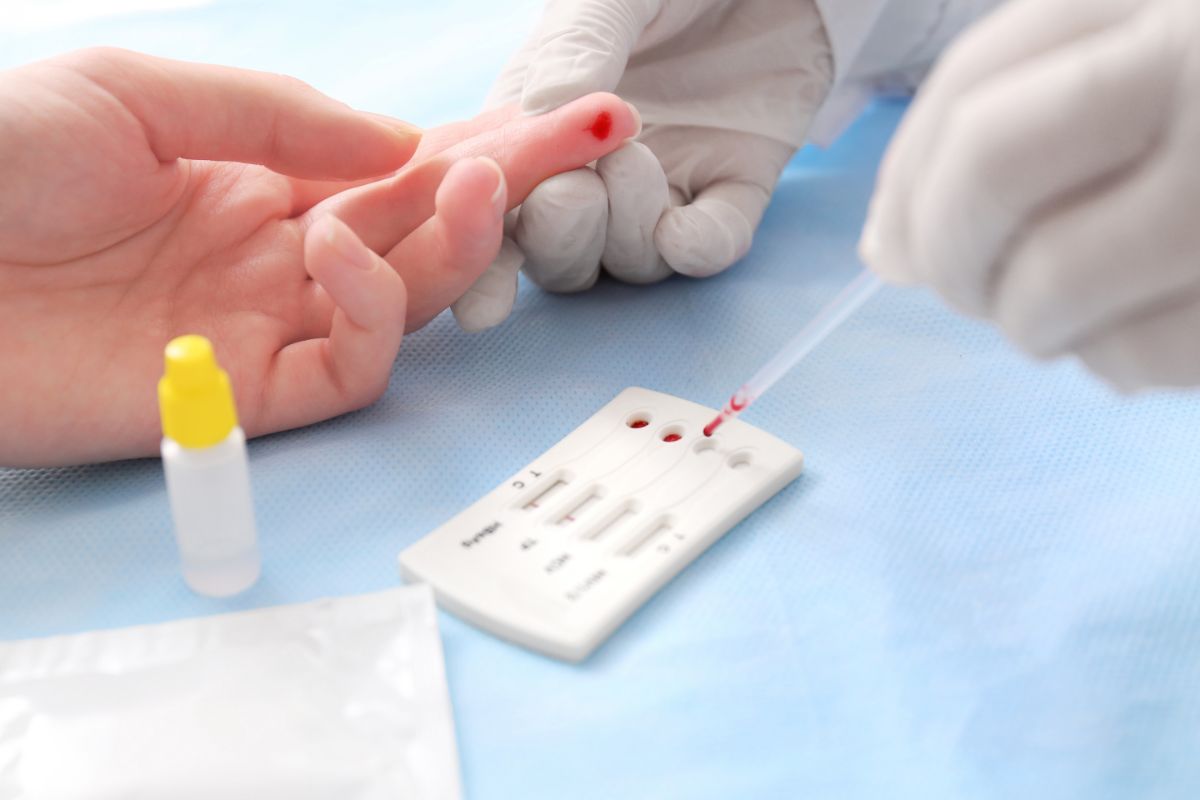Treatment and management of HIV can be a stressful process for pretty much anyone. It is a virus that, with no known cure and the fear of the AIDS pandemic in the 80s and early 90s, it can feel like trying to live with this virus can swallow up the rest of your life.

However, we are no longer in a time when nothing is known about this disease. With decades of research, treatment, and management knowledge behind us, the quality of life and lifespans of people living with HIV are long and full.
As you go further into treatment and management of HIV, you may start to hear more terms thrown your way. Phrases that you may have already heard about, but are only now starting to think about.
For example, what does ‘undetectable’ mean when it comes to living with HIV (see also ‘Where Did HIV Come From? (How It Really Started?)‘) ? And how is it related to terms such as ‘viral load’, or ‘Antiretroviral Therapy’? Well, that’s what this article is for!
In this short guide, we are going to go through what exactly it means to be undetectable when having HIV and going through treatment, as well as some of the other terms that you may hear alongside it. We’re also going to cover what this means in terms of your health, as well as how that can impact others.
Key Terms To Know When Discussing Hiv
Before we go any further, we should first probably define some of the terms that you will likely hear most often when it comes to discussing and treating HIV (see also ‘Is HIV an Epidemic or a Pandemic?‘) .
Hiv
This is a term that you are likely already familiar with. HIV (see also ‘HIV1 And HIV2: What’s The Difference?‘), or Human Immunodeficiency Virus, is a viral infection that attacks a person’s immune system and can lead to the person developing Aids, or Acquired Immunodeficiency Syndrome if left untreated or undiagnosed.
The virus attacks your immune system by replicating in the cells involved in it, such as white blood cells, destroying them, and leading to the development of AIDS.
Viral Load
Viral Load, in the context of detecting and treating HIV, is how many copies of the virus can be found in a milliliter of blood that is being sampled.
These tests are often done to determine if a person has HIV, and how much of the virus is found in their body. It is also a useful way of determining how effective a patient’s treatment or medication is.
ART refers to the treatment methods being used to manage and control the spread of HIV in the body. This often takes the form of various medications that stop the virus from replicating in your immune system, reducing the overall count of HIV in your body, and preventing any more serious effects that HIV has on your body.
Pre-Exposure Prophylaxis (Prep)
This is a procedure that is often done for people who have a high probability of being in contact with HIV and is a method of preventing HIV infection before it has a chance to replicate in the first place. Often, this takes the form of an oral pill that is taken.
What Does Being Undetectable Mean?
So, with this information, what does it mean if a person has been found to have an undetectable viral load when it comes to HIV?
As the name suggests, this is when the number of copies of HIV found in your body cannot be detected or identified by a test, In a millimeter of blood, the number of copies must be less than 50 for them to be undetectable for whatever test you are measuring them with.
When attempting to treat HIV with ART medication and other treatments, this is the ultimate goal that doctors and patients should be striving for.
The Positives Of Being Undetectable
As you can imagine, having an undetectable amount of HIV in your body has many benefits and positives.
As you can imagine, having a low viral count of a virus that has some pretty nasty effects on the body’s immune system means that your immune system will avoid suffering major damage to yourself, especially if you detect and manage it early.
The other major benefit of being undetectable is that you are also unable to transmit the virus to other people.
For individuals who have been on their ART medication course for at least 6 months, and have a measurable suppressed viral count (less than 200 copies of the virus per millimeter of blood), HIV will not be transmitted to another person with who you have sexual intercourse with, so long as you keep taking your medication.
As you can imagine, this means that having an undetectable amount of HIV in your body means that you will help stop the spread of the virus to other people.
With no cure having been found, prevention is the best method for stopping the spread of the virus, it is to control who is and isn’t susceptible to spreading it in the first place.
The other effect that this has doesn’t just affect you but is also an amazing message to spread to others who have HIV. Whilst treatment and help have certainly progressed, many people still worry that having HIV is a death sentence, regardless of the amount of help that you get. Getting that undetectable amount helps send them the message that treatment and living with the virus are possible.
Additional Notes You Should Be Aware Of
There are a few other things to keep note of if you become undetectable, however. Firstly and most importantly, although it is undetectable, you are still HIV-positive. This means that stopping taking the medication will cause the virus to progress again and that you will still register as HIV-positive on a test.
Final Notes
As you can see, though, the pros of being undetectable with HIV far outweigh any negative consequences. So, if you have HIV, make sure that you find out where and when you can start getting treated.
- Understanding Male Reproductive Health: A Complete Guide - February 2, 2025
- Simple Healthy Skin Habits for Radiant Skin - December 6, 2024
- Unlocking the Connection Between Nutrition and Mental Health - December 3, 2024








